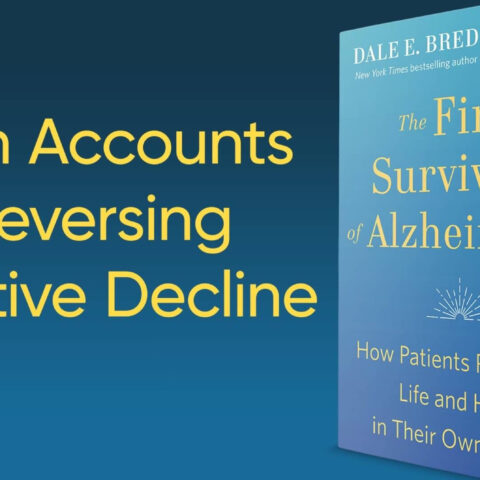The Benefits of Magnesium for ADHD

Magnesium. This little mineral is responsible for over 300 processes in the body, including regulating muscle function, nerve function, and even blood sugar. [1] It’s key for our bones, heart, nerves, mitochondria, and brain. Around half (48%) of Americans are thought to have a less-than-ideal magnesium status [2] because they don’t consume enough in their diets. This means that many of us could probably do with some more magnesium in our lives, especially as it’s so vital for overall health.
RELATED: The Importance of the Magnesium and Calcium Relationship
In fact, magnesium is an essential mineral for our brains—so much so that researchers have increasingly been studying its role in managing the symptoms of Attention Deficient Hyperactivity Disorder (ADHD); a chronic condition characterized by inattentiveness and impulsivity, among other symptoms. ADHD affects about 15.5 million adults [3] and 6.5 million children in the U.S. [4] While more research is certainly needed, the available data about ADHD and magnesium is promising for people with this condition.
Magnesium and ADHD
Researchers are still exploring the potential links between magnesium deficiency and ADHD, but the evidence suggests a strong association, especially for children and young people. A 1997 study of children with ADHD found that a full 95% were magnesium deficient. [5] More recently, in a small study done in 2016, 72% of children tested (18 out of 25) were magnesium deficient. [6] Another 2014 paper found that adolescents with low dietary intake of magnesium were at greater risk of behavior problems like aggression. [7]
There’s some evidence for adults, too. A 2019 meta-analysis indicated that there is a likely inverse relationship between magnesium deficiency and ADHD. [8] This was because study subjects with ADHD had significantly lower magnesium levels in their blood compared to people without ADHD.
Why might this be? Magnesium supports neurotransmitters (chemical messengers that allow communication between the brain, muscles, and other functions of the body) and the way they function in the brain. Magnesium enhances the transmission and receptor status of both GABA and serotonin in the brain, [9] contributing to overall feelings of calm and emotional stability. It also helps regulate the hypothalamic-pituitary-adrenal axis, which can potentially reduce the body’s stress response.
When the body and brain have adequate magnesium, a person may experience improved impulse control, better emotional regulation, and enhanced focus—key areas that can be challenging for people with ADHD.
Studies looking specifically at magnesium supplementation and its effects on ADHD are promising as well. A 2020 study of 66 children found a significant decrease in conduct problems and social problems when children were given supplementary magnesium and vitamin D. [10]
Again, it’s key to stress that the studies that have been done on the connection between magnesium and ADHD are small, so more research is needed. Still, if you have ADHD and are interested in getting more magnesium to see if it helps with your symptoms, consult with your healthcare professional to see if they feel it’s a safe therapy to try.
You may start by eating foods that are rich in magnesium, like almonds, pumpkin seeds, spinach, and avocado. Eating The Paleo Diet® is an effective way to keep the magnesium to calcium ratio ideal in your diet, as well. Research on diet and ADHD is also developing, [11] but is so far compelling, especially regarding the gut microbiome.
Different Forms of Magnesium and Their Uses
Though a healthy diet is the best way to get an appropriate intake of nutrients, everyone’s circumstances are different. Taking a magnesium supplement is a one way to support your body if you’re unable to get enough through diet alone—whether for ADHD or other conditions.
There are several forms of magnesium to supplement with, each with different properties, bioavailability, and actions in the body.
- Magnesium L-Threonate: Known for cognitive benefits and brain function. This would be the ideal form to take for ADHD if you are unable to get enough through your diet.
- Magnesium Citrate: Supports digestion and may help with constipation.
- Magnesium Malate: Useful for supporting energy and muscle recovery.
- Magnesium Oxide: Often used for help with constipation and heartburn, but is less bioavailable than other forms.
- Magnesium Glycinate: Best for relaxation, anxiety, and sleep support, but also supports blood sugar management
- Magnesium Sulfate: Easily dissolvable in water and helps relax muscles. You may know it as Epsom salts!
- Magnesium Chloride: Also often used in bath salts and easily absorbed topically.
Although magnesium is generally a safe mineral to consume (magnesium toxicity is rare, but note that people with kidney disease are more at risk [12]), it is key to choose the right type and dose to support your individual body and needs. Some people like to take a blend of multiple types of magnesium to ensure they are supporting their body’s functioning in multiple ways.
Check in with your healthcare provider to make an informed decision about how best to support your body with magnesium.
References
- Office of Dietary Supplements. (2021, March 22). Magnesium: Fact sheet for consumers. National Institutes of Health. https://ods.od.nih.gov/factsheets/Magnesium-Consumer/
- DiNicolantonio, J. J., O’Keefe, J. H., & Wilson, W. (2018). Subclinical magnesium deficiency: a principal driver of cardiovascular disease and a public health crisis. Open heart, 5(1), e000668. https://doi.org/10.1136/openhrt-2017-000668
- Staley, B. S., Robinson, L. R., Claussen, A. H., Katz, S. M., Danielson, M. L., Summers, A. D., Farr, S. L., Blumberg, S. J., & Tinker, S. C. (2024). Attention-Deficit/Hyperactivity Disorder Diagnosis, Treatment, and Telehealth Use in Adults – National Center for Health Statistics Rapid Surveys System, United States, October-November 2023. MMWR. Morbidity and mortality weekly report, 73(40), 890–895. https://doi.org/10.15585/mmwr.mm7340a1
- Danielson, M. L., Claussen, A. H., Bitsko, R. H., Katz, S. M., Newsome, K., Blumberg, S. J., … Ghandour, R. (2024). ADHD Prevalence Among U.S. Children and Adolescents in 2022: Diagnosis, Severity, Co-Occurring Disorders, and Treatment. Journal of Clinical Child & Adolescent Psychology, 53(3), 343–360. https://doi.org/10.1080/15374416.2024.2335625
- Kozielec, T., & Starobrat-Hermelin, B. (1997). Assessment of magnesium levels in children with attention deficit hyperactivity disorder (ADHD). Magnesium research, 10(2), 143–148. https://pubmed.ncbi.nlm.nih.gov/9368235/
- Farida El Baza, Heba Ahmed AlShahawi, Sally Zahra, Rana Ahmed AbdelHakim, Magnesium supplementation in children with attention deficit hyperactivity disorder, Egyptian Journal of Medical Human Genetics, https://doi.org/10.1016/j.ejmhg.2015.05.008.
- Black, L. J., Allen, K. L., Jacoby, P., Trapp, G. S., Gallagher, C. M., Byrne, S. M., & Oddy, W. H. (2015). Low dietary intake of magnesium is associated with increased externalising behaviours in adolescents. Public health nutrition, 18(10), 1824–1830. https://doi.org/10.1017/S1368980014002432
- Effatpanah, M., Rezaei, M., Effatpanah, H., Effatpanah, Z., Varkaneh, H. K., Mousavi, S. M., Fatahi, S., Rinaldi, G., & Hashemi, R. (2019). Magnesium status and attention deficit hyperactivity disorder (ADHD): A meta-analysis. Psychiatry research, 274, 228–234. https://doi.org/10.1016/j.psychres.2019.02.043
- Pickering, G., Mazur, A., Trousselard, M., Bienkowski, P., Yaltsewa, N., Amessou, M., Noah, L., & Pouteau, E. (2020). Magnesium Status and Stress: The Vicious Circle Concept Revisited. Nutrients, 12(12), 3672. https://doi.org/10.3390/nu12123672
- Hemamy, M., Heidari-Beni, M., Askari, G., Karahmadi, M., & Maracy, M. (2020). Effect of Vitamin D and Magnesium Supplementation on Behavior Problems in Children with Attention-Deficit Hyperactivity Disorder. International journal of preventive medicine, 11, 4. https://pubmed.ncbi.nlm.nih.gov/32089804/
- Lange, K. W., Lange, K. M., Nakamura, Y., & Reissmann, A. (2023). Nutrition in the Management of ADHD: A Review of Recent Research. Current nutrition reports, 12(3), 383–394. https://doi.org/10.1007/s13668-023-00487-8
- Ajib FA, Childress JM. Magnesium Toxicity. [Updated 2022 Nov 7]. In: StatPearls [Internet]. Treasure Island (FL): StatPearls Publishing; 2025 Jan-. Available from: https://www.ncbi.nlm.nih.gov/books/NBK554593/
Carrie Murphy
Carrie Murphy is a writer, mother, and doula. She works to create accessible content that helps people make informed decisions about their bodies and health.
More About The Author




